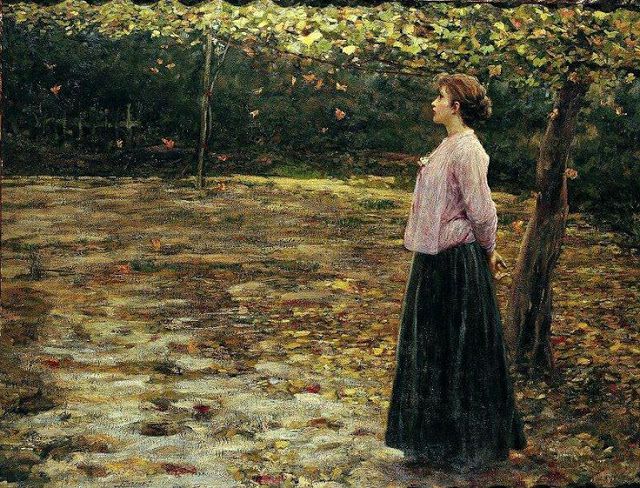Reviewing the basics of the cloistered heart analogy, I'm reminded that our 'call' is that of every Christian. The analogy we use is simply a way of helping us envision it.
Each of us is called to live according to the will of God. Our Creator placed us on this earth and gave us instructions on how to live (Genesis 2:16-17). It was pretty simple, really, and absolutely do-able. God said, in essence: I have put before you all you will ever need. A splendid bounty. You don't even have to work for it. All I ask is that you trust Me, trust that I know what's best for you, and just do not eat of that one single solitary tree.
Ooops.
All these millenia later, we still face the same basic choice. Because of that first ooops, we were not born into Eden - but thanks to Our Savior, we do have an eternal garden of glory awaiting us. And the way I look at it, we also have an opportunity to live, even on earth, in the best location possible. A place from which we can look with anticipation toward our eternal Home. A place in which we can be assured that God is ordering our circumstances (even when we see them as painful or murky) toward nothing but good.
Of course, I'm speaking of the will of God, the boundaries of which are mapped out for us in His Word and through His Church.
Yes, this is very basic stuff. But oh, how easy it is to lose sight of basics! Which is why I'm grateful for the imagery of enclosure, and of grillwork, because these help me as I try to practice the basics day by day.
In circumstance after circumstance, we are presented with the question: 'Did God really say?' This threads through our culture, usually as a general assumption that He said no such things. 'In this enlightened, scientific, sophisticated age, do you mean to tell me you think all that stuff in the Bible is really true? You think God really said? Why don't you just open your eyes and judge for yourself!?'
'The woman saw that the tree was good for food, pleasing to the eyes, and desirable for gaining wisdom...' (Genesis 3:6)
The woman saw. The woman judged for herself. She could see no reason not to eat from that particular tree except for one teeny tiny detail, surely a small matter that could be overlooked.
God said.




























